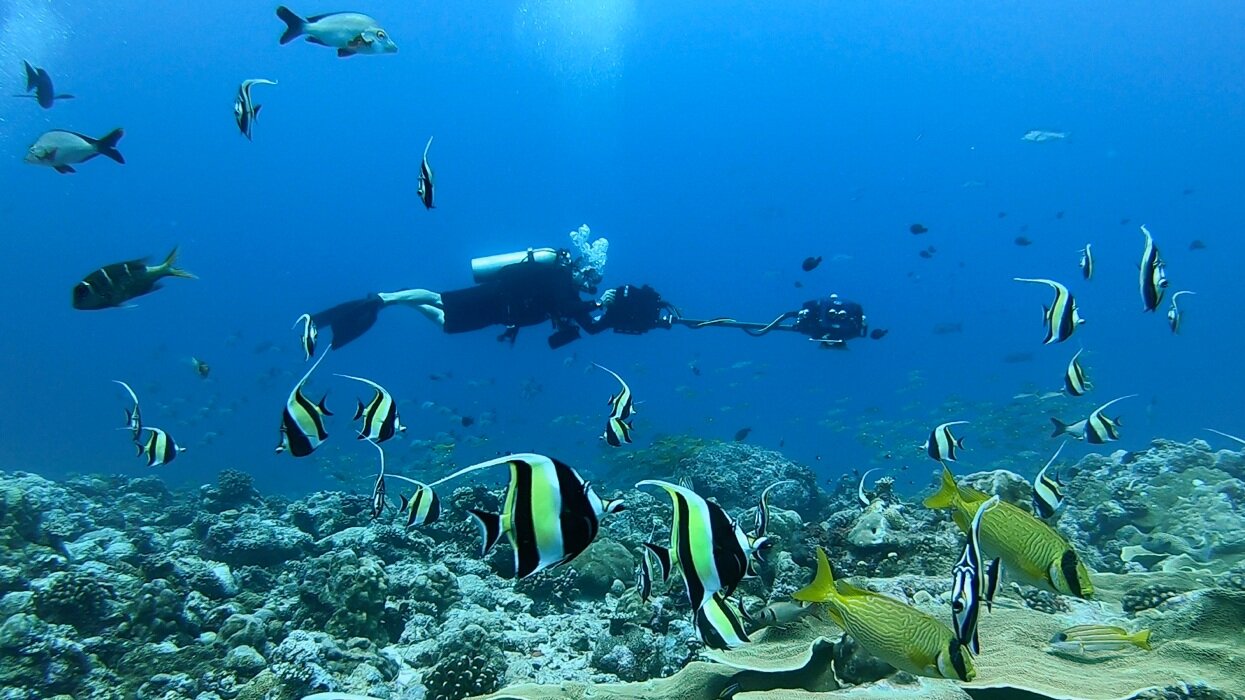The Decade of Ocean Empathy
Creating an accessible, inspiring, and engaging ocean
This official programme of the UN Decade of Ocean Science for Sustainable Development (2021-2030) creates and supports projects that center communication, connection, and creative problem solving to inspire ocean empathy, curiosity, and stewardship. By focusing on actions that leverage human-centered design, learning science, and emerging technologies, we can impactfully reach as many people as possible to transform ocean indifference into ocean advocacy.
-
(1) CREATE and build capacity for immersive virtual ocean experiences that connect learners to marine environments.
(2) LEAD research on science learning, ocean literacy, and “21st century skills” like collaboration, empathy, and critical thinking.
(3) FOSTER an international community of multidisciplinary ocean scientists, educators, technologists, and decision makers.
-
The Decade of Ocean Empathy seeks to address the following Ocean Decade challenges and outcomes:
CHALLENGE 9: Skills, knowledge and technology for all
CHALLENGE 10: Change humanity’s relationship with the ocean
OUTCOME 6: An accessible ocean
OUTCOME 7: An inspiring and engaging ocean
-
Launched in 2021, the Decade of Ocean Science for Sustainable Development seeks to ‘stimulate ocean science and knowledge generation to reverse the decline of the state of the ocean system and catalyze new opportunities for sustainable development in this massive marine ecosystem.’ By creating a framework for scientific knowledge development, and fostering a network of international scientists and stakeholders from diverse sectors, the Decade of Ocean Science aims to deliver science-based solutions to achieve the UN’s 2030 Agenda for Sustainable Development and generate the science we need for the ocean we want.
Our Decade Programme combines evidence with empathy. A key element in bridging scientific discovery and public understanding is human connection through meaningful ocean experiences. If we can create these experiences at scale, then we’re on to something powerful.
- Dr. Erika Woolsey, Chief Scientist of The Hydrous
OCEAN EMPATHY PROJECTS
Explore experiential, educational, and entertaining projects in support of our UN Ocean Decade Programme’s mission to inspire ocean empathy and create an accessible ocean!
AR REEF
This augmented reality (AR) experience allows you to explore and learn about tropical coral reefs from wherever you are! Bring 3D scans of the National Museum of Natural History’s coral specimen collection to life in this fun, educational, and accessible experience.
EXPLORE VR
Explore VR is an interactive virtual reality experience originally developed for the scientific research project “Advancing Ocean Literacy through Immersive Virtual Reality.” In Explore VR, the learner uses 6 DoF (degrees of freedom) to train like a marine biologist by tagging manta rays, monitoring ocean health from outer space, and measuring changes in coral reef biodiversity.
Advancing Ocean Literacy through Immersive VR
In collaboration with the Stanford University Virtual Human Interaction Lab (VHIL), this research project measures the impact of immersive virtual reality (IVR) experiences for marine science, discovers strategies to inform the use of IVR in science education, and investigates the effects of IVR on vection, presence, and environmental empathy.
IMMERSE 360
This virtual dive explores the coral reefs of Palau with The Hydrous Chief Scientist Dr. Erika Woolsey as your guide. You’ll swim with manta rays, sea turtles, and sharks while learning about beautiful, yet threatened coral ecosystems. Narration from marine scientists and young ocean advocates educates viewers while inspiring a sense of empathy for the ocean.
21st century mermaids
A podcast dedicated to women blazing trails and fighting tirelessly for our ocean! Join host Danni Washington in conversation with a different “mermaid” each episode.
expedition palau
With its debut during World Oceans Week 2021, Expedition Palau brought learners around the world together for an award-winning virtual dive. This first-of-its-kind shared, synchronized, immersive reality experience (SSIRE) has been heralded for its technical prowess and we’re scaling up the format to bring the experience to as many learners as possible.
Immersive Reality for Environmental Education Facilitation
IREEF’s mission is to understand the role of ocean-related extended reality – or “Ocean XR” – in marine education. The goals of this research are to: 1) assess the field of Ocean XR in relation to marine education and ocean literacy, 2) build a community of Ocean XR stakeholders, and 3) report our findings & recommendations through peer-reviewed publications and public engagement.
Interested in being part of our UN Ocean Decade Programme?
Is your work in line with our mission and objectives outlined above?
OCEAN EMPATHY RESEARCH PUBLICATIONS
We’re honored that our ocean empathy and immersive education research projects have been featured in a variety of publications.
McGivney, E. (2021). Immersive Media in Remote Schooling: “I was surprised how engaged I was.” Proceedings of the 2021 Immersive Learning Research Network.
Carroll, B. & Tambe, P.T. (2022) Evaluation Report by Inverness Research: Advancing Ocean Science Literacy Through Immersive Virtual Reality.
Queiroz, A. C. M., Fauville, G., Herrera, F., Leme, M.I.S & Bailenson, J. N. (2020, May). Cognitive and non-cognitive outcomes of immersive virtual reality. 70th International Communication Association Conference, Australia.
Queiroz, A.C.M., Fauville, G., Herrera, F., Leme, M.I.S., Bailenson, J. N. (2022). Do Students Learn Better with Immersive Virtual Reality Videos than Conventional Videos? A Comparison of Media Effects with Middle School Girls. Technology, Mind and Behavior. https://doi.org/10.1037/tmb0000082
Fauville G, Queiroz ACM, Woolsey ES, Kelly JW, Bailenson JN (2021) The effect of water immersion on vection in virtual reality. Scientific Reports 11: 1022
Queiroz, A. C. M., McGivney, E., Liu, S. X., Anderson, C. O., Beams, B., DeVeaux, C., Frazier, K., Han, E., Miller, M. R., Petersen, X. S., Woolsey, E. S., Hancock, J., Bailenson, J. N. (2023), Collaborative Tasks in Immersive Virtual Reality Increase Learning. In Proceedings of the 16th International Conference on Computer-Supported Collaborative Learning-CSCL 2023. International Society of the Learning Sciences.
OCEAN EMPATHY MEDIA FEATURES
Learn more about our UN Ocean Decade Programme in these interviews and articles.
The Ocean and Us edited by Farah Obaidullah, Women4Oceans
UN Decade Interview: Conversations with Erika Woolsey
Ocean Decade Action: The Decade of Ocean Empathy









